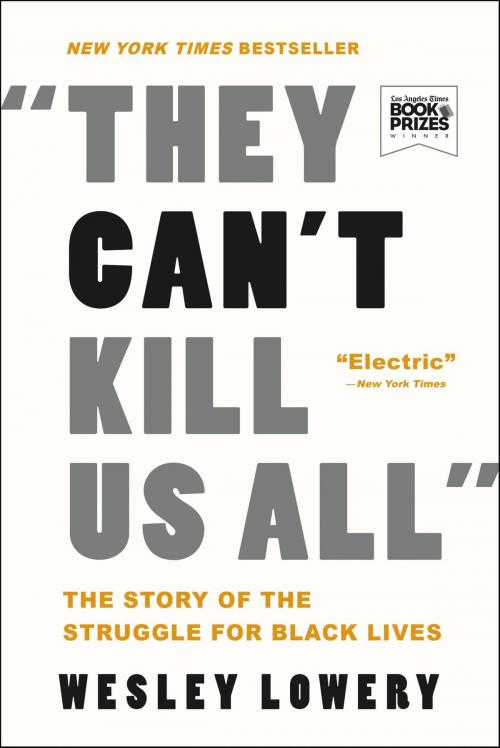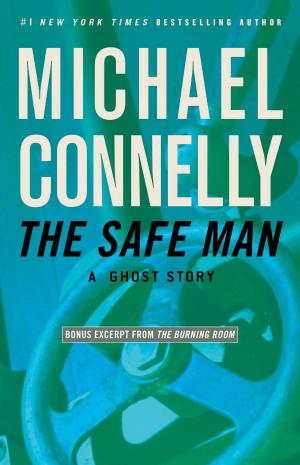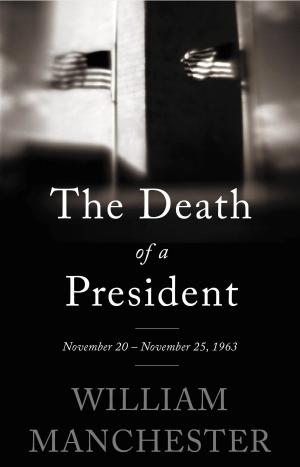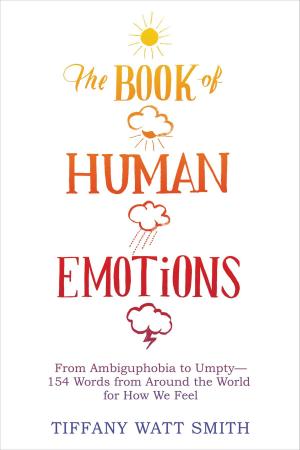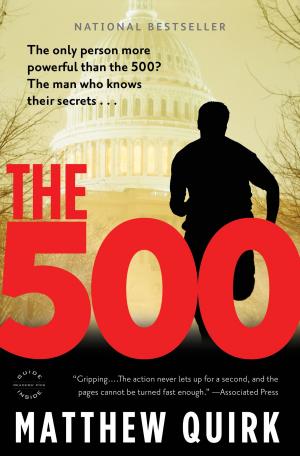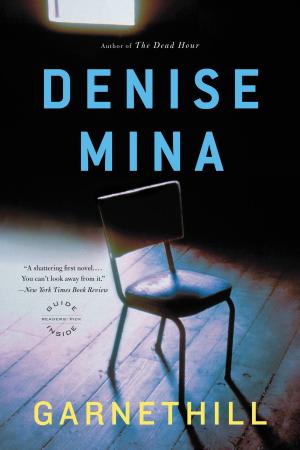They Can't Kill Us All
Ferguson, Baltimore, and a New Era in America's Racial Justice Movement
Nonfiction, Social & Cultural Studies, Political Science, Politics, Law Enforcement, Civil Rights, History, Americas, United States| Author: | Wesley Lowery | ISBN: | 9780316312509 |
| Publisher: | Little, Brown and Company | Publication: | November 15, 2016 |
| Imprint: | Little, Brown and Company | Language: | English |
| Author: | Wesley Lowery |
| ISBN: | 9780316312509 |
| Publisher: | Little, Brown and Company |
| Publication: | November 15, 2016 |
| Imprint: | Little, Brown and Company |
| Language: | English |
LA Times winner for The Christopher Isherwood Prize for Autobiographical Prose
A New York Times bestseller
A New York Times Editors' Choice
**A Featured Title in The New York Times Book Review's "Paperback Row"
A Bustle "17 Books About Race Every White Person Should Read"
"Essential reading."--Junot Diaz
"Electric...so well reported, so plainly told and so evidently the work of a man who has not grown a callus on his heart."--Dwight Garner, New York Times, "A Top Ten Book of 2016"
"I'd recommend everyone to read this book because it's not just statistics, it's not just the information, but it's the connective tissue that shows the human story behind it." -- Trevor Noah, The Daily Show**
A deeply reported book that brings alive the quest for justice in the deaths of Michael Brown, Tamir Rice, and Freddie Gray, offering both unparalleled insight into the reality of police violence in America and an intimate, moving portrait of those working to end it
Conducting hundreds of interviews during the course of over one year reporting on the ground, Washington Post writer Wesley Lowery traveled from Ferguson, Missouri, to Cleveland, Ohio; Charleston, South Carolina; and Baltimore, Maryland; and then back to Ferguson to uncover life inside the most heavily policed, if otherwise neglected, corners of America today.
In an effort to grasp the magnitude of the repose to Michael Brown's death and understand the scale of the problem police violence represents, Lowery speaks to Brown's family and the families of other victims other victims' families as well as local activists. By posing the question, "What does the loss of any one life mean to the rest of the nation?" Lowery examines the cumulative effect of decades of racially biased policing in segregated neighborhoods with failing schools, crumbling infrastructure and too few jobs.
Studded with moments of joy, and tragedy, They Can't Kill Us All offers a historically informed look at the standoff between the police and those they are sworn to protect, showing that civil unrest is just one tool of resistance in the broader struggle for justice. As Lowery brings vividly to life, the protests against police killings are also about the black community's long history on the receiving end of perceived and actual acts of injustice and discrimination. They Can't Kill Us All grapples with a persistent if also largely unexamined aspect of the otherwise transformative presidency of Barack Obama: the failure to deliver tangible security and opportunity to those Americans most in need of both.
LA Times winner for The Christopher Isherwood Prize for Autobiographical Prose
A New York Times bestseller
A New York Times Editors' Choice
**A Featured Title in The New York Times Book Review's "Paperback Row"
A Bustle "17 Books About Race Every White Person Should Read"
"Essential reading."--Junot Diaz
"Electric...so well reported, so plainly told and so evidently the work of a man who has not grown a callus on his heart."--Dwight Garner, New York Times, "A Top Ten Book of 2016"
"I'd recommend everyone to read this book because it's not just statistics, it's not just the information, but it's the connective tissue that shows the human story behind it." -- Trevor Noah, The Daily Show**
A deeply reported book that brings alive the quest for justice in the deaths of Michael Brown, Tamir Rice, and Freddie Gray, offering both unparalleled insight into the reality of police violence in America and an intimate, moving portrait of those working to end it
Conducting hundreds of interviews during the course of over one year reporting on the ground, Washington Post writer Wesley Lowery traveled from Ferguson, Missouri, to Cleveland, Ohio; Charleston, South Carolina; and Baltimore, Maryland; and then back to Ferguson to uncover life inside the most heavily policed, if otherwise neglected, corners of America today.
In an effort to grasp the magnitude of the repose to Michael Brown's death and understand the scale of the problem police violence represents, Lowery speaks to Brown's family and the families of other victims other victims' families as well as local activists. By posing the question, "What does the loss of any one life mean to the rest of the nation?" Lowery examines the cumulative effect of decades of racially biased policing in segregated neighborhoods with failing schools, crumbling infrastructure and too few jobs.
Studded with moments of joy, and tragedy, They Can't Kill Us All offers a historically informed look at the standoff between the police and those they are sworn to protect, showing that civil unrest is just one tool of resistance in the broader struggle for justice. As Lowery brings vividly to life, the protests against police killings are also about the black community's long history on the receiving end of perceived and actual acts of injustice and discrimination. They Can't Kill Us All grapples with a persistent if also largely unexamined aspect of the otherwise transformative presidency of Barack Obama: the failure to deliver tangible security and opportunity to those Americans most in need of both.
